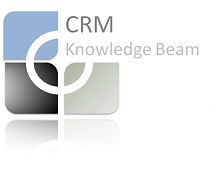Wednesday, October 14, 2009
Kaidara Announces Version 4.4
Sunday, June 28, 2009
Non-traditional Knowledge Engineering for Phenomenal results
2. Evolve content based on demand and usage
3. Develop a knowledge base of our collective experience to date
4. Reward learning, collaboration, sharing, and improving
Friday, May 29, 2009
Quick thought: where is the money in social networking?
Social networking sites like Facebook and MySpace, will not make the big bucks just from advertizing. They will make money by selling diaries! Think about it; members are recording their lives on these sites. The math is simple. $30/diary x 1B members x 50% attached rate = $15B
Thursday, May 14, 2009
StreetSmart: Don’t Fall for Vendor-Centric ROI Tales.
No one learns how to navigate a dangerous neighborhood in the safety of a classroom. Likewise, you won't become street savvy when you let a Vendor ‘Sell’ you a ‘Free’ ROI study. By no means, take the freebee! Beware! Vendors often tailor ‘Free’ ROI assessment studies to capabilities bound by limitations of their technology. These Vendor-Centric studies can limit the true potential of the business.
Tip: Before you put your career and reputation on the line, read the Complete Guide to Call Center ROI, scrutinize the ‘Free’ findings and make your own judgment. Own it!
In the Customer-Service business, return on investment (ROI) for Knowledge Management Solutions is typically determined by calculations on cost-savings/cost-avoidance basis. There is a great opportunity to achieve a significant ROI by generating revenue while servicing customers. Cost-savings/cost-avoidance based ROI usually results to a much harder sale and in most cases a longer budget approval cycle.
While most of the emphasis of the calculations is suggested on very specific performance metrics, suitable for a throughput-centric call center, very few calculations take into account the evolution of a call center from throughput-centric environment to a quality-centric and ultimately customer-centric profit center. As business strategies change to adapt to the economic environment, Customer-Service should also be aligned accordingly to meet new strategic goals.
This paper intends is to expose ROI calculations from the Customer-Service-Business point of view as opposed to Solution–Centric limited view. The paper will further discuss different types of technologies currently available in the market and evaluate their ability to meet the requirements of highly demanding modern Customer Service Business.
Click here to receive a FREE Complete Guide to Call Center ROI.
Tuesday, May 5, 2009
5 minute Recipe: Knowledge-Base Vendor Evaluation
Tip: If you have a budget, don’t allow vendors waste your time in producing the obvious ROI calculation. Spend time in evaluating the technology
Search
A ‘Vanilla’ requirement: Spell tolerant, keyword search. They all have it, and if they don’t, drop them off the list. Give extra credit to the vendor that offers out-of-the-box keyword to synonym matching. It will be a life saver down the road.
Natural Language Processing (NLP); very effective for end-users (Self-Service). You don’t need it in call centers; phone based agents don’t have time to type complete sentences. Don’t waste their time.
Tip: Some vendors claim they have NLP simply because they can tokenize text and stem keywords. This so called morphological analysis is not adequate. Look for ability to resolve ambiguity and understand intend. Beware of hidden requirements to create extensive taxonomies and manual corpus annotation.
Browse
The ability to browse groups of articles organized in topic-subtopic hierarchies is a simple and effective way to locate information. Never choose a product that doesn’t have the capability even if you are convinced you don’t need it; your users expect it.
Look for systems that automatically optimize topic-subtopics trees. If the vendor doesn’t have an automatic capability, confirm they have consultants that can do the job.
Tip: folder-subfolders created by authors are rarely useful to an end-user. Look for the capability of decoupling topic-subtopic trees from author taxonomies.
DFAQ
Dynamically generated FAQs is not just a ranking of articles based on frequency they were used. DFAQ is the automatic compilation of end-user questions and their corresponding answer derived from the Knowledgebase. The ranking algorithm should be overridable and must include a time decay factor to reduce the importance of old FAQs.
Tip: my clients find it extremely effective when the DFAQ list is contextual. DFAQ Context can be derived from the selected topic, the search query or the sequence of pages viewed. Look for the vendor that can demonstrate it as an out-of-the-box feature.
Key ingredients for an intelligent Knowledgebase
The neglect of the obvious has been fatal to the development of scientific thought. The false conception of an intelligent knowledgebase as a means of “reading your mind” in my opinion largely vitiated the practical approach to intelligence. The view set forth in my next blog is merely academic: Key ingredients for an intelligent Knowledgebase
- Proactively engage by monitoring my activity on the website thus intercepting my requests for assisted service
- Adapt to my level of expertise, channel of interaction (cellphone, website, IVR) and locality
- Learn and harvest the community knowledge
- Inform and notify about its usefulness, performance and areas of improvement
